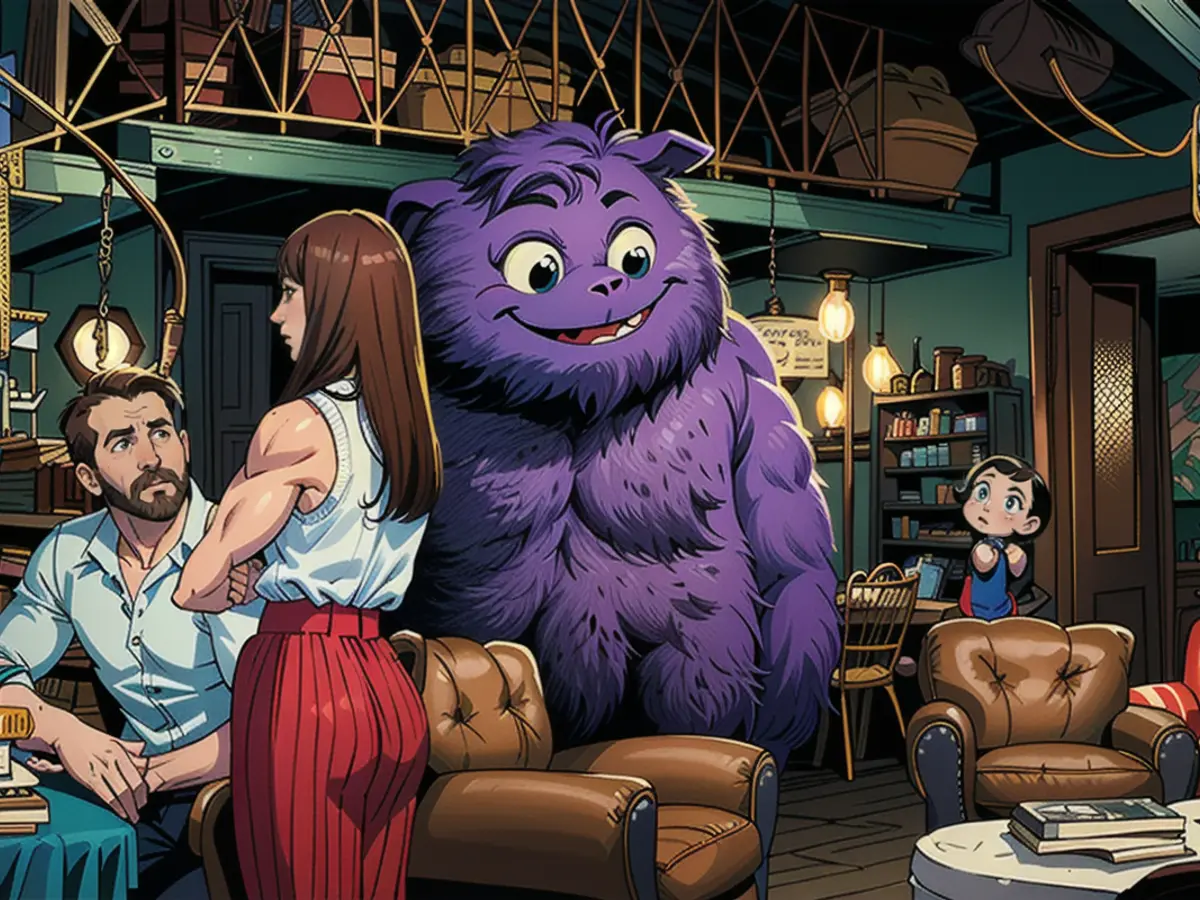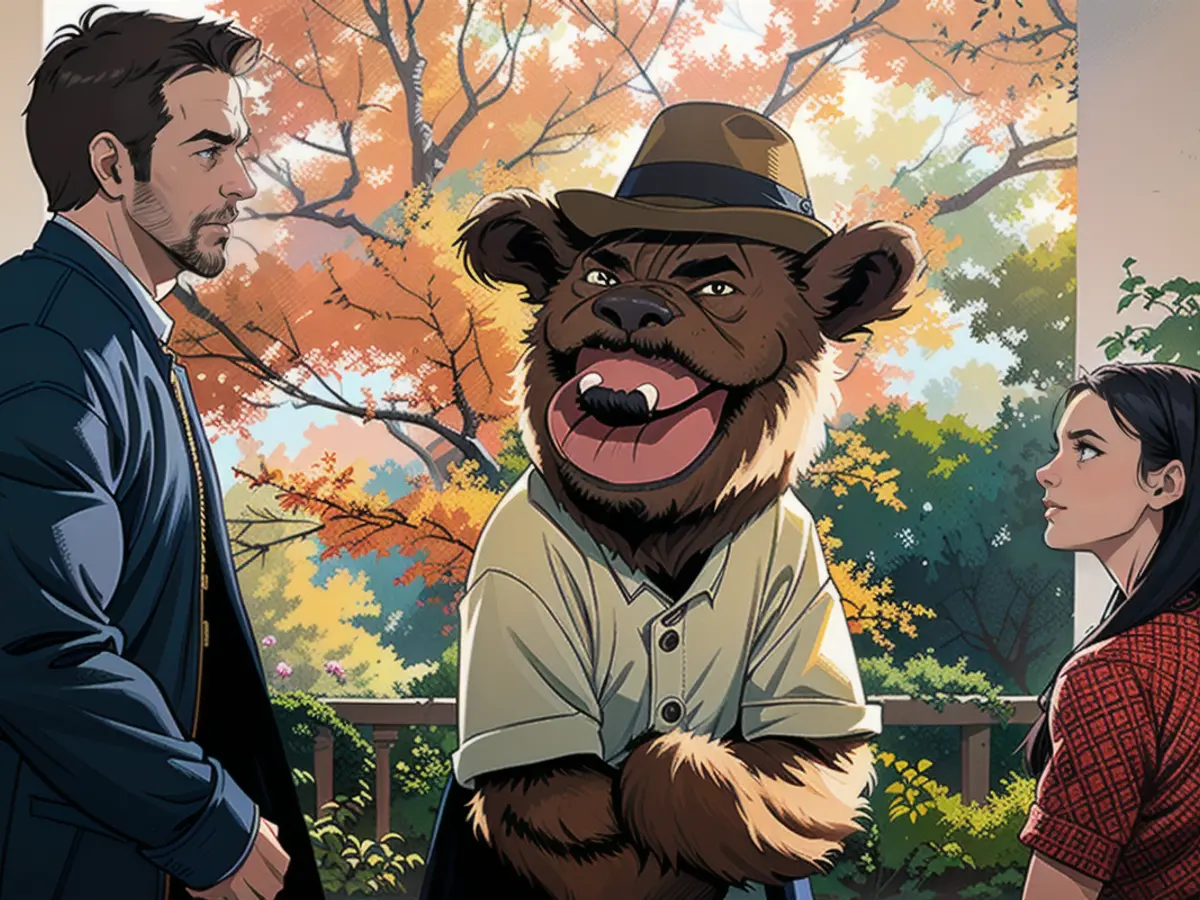Viewpoint: The wasted potential of 'IF'
In today's world, it's natural to seek an escape. It feels like everything is burning, though that's mostly a figment of our imagination. Escapism provides comfort. It's not necessarily a bad thing. We often see escapism as running away from reality, and that's okay. We all require a break sometimes. What's intriguing is that escapist literature, such as sci-fi and fantasy, also serves as a mirror for reflection. They allow us to step away from the constraints of reality and enter fictional worlds where we can explore new perspectives and truths about ourselves and the world around us. Imagination sharpens our understanding of reality.
"IF" is a recent addition to the growing catalog of imaginary escapism, directed by John Krasinski. It follows a young girl named Bea, who, as she approaches adolescence, discovers her ability to see children's imaginary friends. The movie is a heartwarming celebration of the magic of childhood and the transformative power of our imagination. However, it falls short of realizing its potential by being mundane and uninspired. Its desire to capture the whimsy of a Spielberg production sputters, leaving viewers feeling unengaged.
The plot lacks clarity, and the rules of its fantasy world feel fuzzy, which limits the viewers' capacity to intricately fill in the blanks of the story. At times, the pacing can be lethargic, potentially disappointing its target audience. The most disheartening aspect, though, is Bea's imaginary friends. While they possess all-star voices, they fail to captivate both in design and personality, often becoming clichés. Carell's character, Blue, is a prime example, embodying the debate stereotype of being a simpleton.
Despite these shortcomings, it's impossible to deny the film's admiration for imagination. It leaves us with an invitation: to remember the value of imagination in our lives, especially now when our imaginations are needed more than ever.
Imagination serves many purposes. It can offer a safe haven, but it's also a source of empathy, enabling us to journey through time and space, and more. It transports us, making us see the world through someone else's eyes. It breaks barriers and expands our consciousness. Essentially, it provides a flexible set of constructs that help us navigate reality.
We are all products of our imagination. It creates our personalities, preferences, feelings, dreams - even love. Imagination resonates with us deeply, even though they are illusive and intangible. Imagineering is not only doing, but also imagining. In other words, crafting something requires envisioning it.
Love is fundamentally an act of imagination. We take abstract ideas and give them tangible meaning. We imbue these ideas with significance, and simply knowing that we've generated these feelings brings them to life.
Imagination is pivotal to a child's development, fostering creativity and critical thinking. These skills are vital in the business world and every aspect of life. It's disheartening to see the imagination aspects of "IF" underutilized, given its focus on imagination. It's unfortunate that after all the pleas for the importance of imagination, the film doesn't fully embody it.
Imagination is a powerful tool that manifests in our entire lives, manifested in identities, relationships, emotions, culture, and sensibilities. In essence, imagination shapes all aspects of our being. Poet Muriel Rukeyser would say, "The universe is comprised of stories, not atoms.". We are human because of our ability to create narratives about ourselves and our world. Without imagination, we'd be just flesh and bone, incapable of creating, expressing, or experiencing anything. Imagination makes the intangible real, and in doing so, enriches our emotional lives and helps us to grow as human beings. It's the bedrock of our internal worlds, so essential we without it, we wouldn't be who we are.

It's no coincidence that our imagination is as central to our lives as our physical bodies. Our characters and feelings reside in our minds. We construct our identities and values through the stories we create for ourselves. Our desires and goals stem from what we imagine. Our imagination contributes to our emotional well-being and enhances our understanding of others and our reality. Imagination is the starting point for love, and it provides a path for making sense of our experiences.
The power of imagination is finite, but the possibilities it presents are not. It's the real meaning behind the old adage "Creation is what our imaginations make of reality.". We are essentially creatures of narrative.
Yet, as Albert Einstein expressed in his glorious phrasing, "Imagination is more critical than knowledge. Knowledge is limitless, while imagination embraces the entire universe, catalyzing advancements, birthing innovation." This statement conveys two meanings. Primarily, it refers to experimentation, asserting that a scientific idea is, essentially, an act of imagination. However, on a broader spectrum, it implies that if we can envision it, we can accomplish it, and we can ultimately transform into that vision. We reside within the realm we initially imagine.
In essence, Einstein was harmonizing with the Bible's opening words: the tale of creation in Genesis. There, God repeatedly expresses "let there be," creates, and then the thing materializes - initially imagination, then actuality.
Similarly, "IF" conveys the same idea while maintaining some disjointedness. Kids inherently comprehend that their imaginary world is as real as the adult world and, at times, more coherent. They envision, and they create.
As we progress from childhood to adulthood, we tend to lose our innate comprehension accompanied by the pure delight it brings. Jumpstarting this lost knowledge entails reconnecting with our inner child. It's a worn-out message, and "IF" doesn't contribute new perspectives, but it remains a simple fact.
When inquired about his sculpting process, Michelangelo replied, "I perceived the angel within the marble and carved until I released him." He simply abided by what he visualized in his inner eye. Regarding imagination, we are the captive angel buried in the marbled confines. Our unbounded capacity for imagination serves as our creation, comprehension, progression, and hope. The sole constraint lies within us. We must continually muster the courage to break free.
So, just let your imagination run wild.

Read also:
- This will change in December
- Dikes withstand water masses so far - Scholz holds out the prospect of help
- Fireworks and parties ring in 2024 - turn of the year overshadowed by conflicts
- Attacks on ships in the Red Sea: shipping companies avoid important trade route
Despite the film's shortcomings in fully embodying the imagination it celebrates, it sparks important conversations about the role of imagination in our lives. Our opinions on the film's success in this regard may vary, but its appeal to the value of imagination is undeniable.
Moreover, the film serves as a reminder of the power of imagination, not just in childhood but throughout our lives. It encourages us to continue nurturing and reconnecting with our inner child's imagination, knowing that it's a powerful tool for personal growth and understanding.
Source: edition.cnn.com







